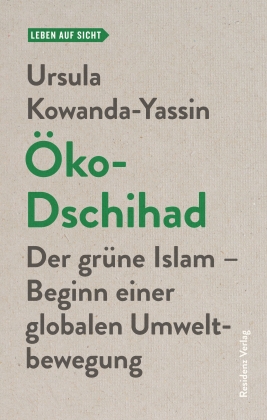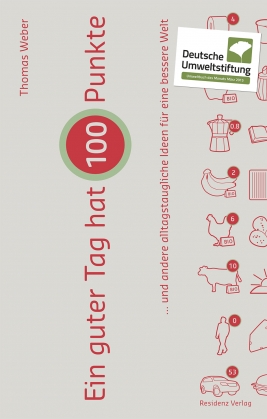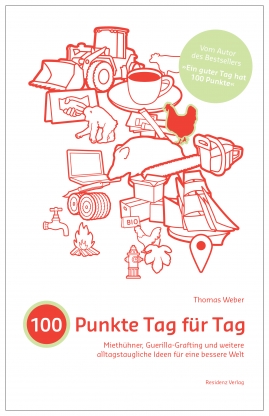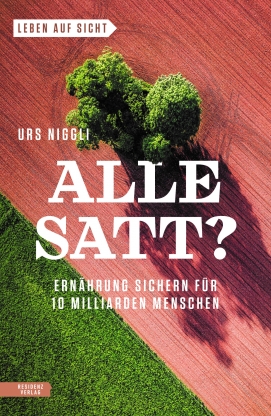Das Buch zeigt einmal mehr, dass die Welt wesentlich vielschichtiger und bunter ist, als wir Europäer gemeinhin glauben.
[Quelle: DIE PRESSE]
Dieser ungewöhnliche Titel vermittelt einen Einblick in einen etwas anderen Zugang zum Umweltproblem, der nicht nur Muslime interessieren dürfte.
[Quelle: Jochen Dudeck, EKZ]
Der Umgang der muslimischen Welt mit dem Thema Ökologie ist so vielfältig wie sie selbst.
[Quelle: Erich Klein, DER FALTER]
Eine Reise durch muslimische Menschengruppen und Umweltkonzepte weltweit. Ich würde das Buch jeden Menschen empfehlen, der sich für Umwelt und/oder Religion und/oder Islam interessiert, weil darin Themen vorkommen, die auch auf andere Religionen und Weltansichten umgelegt werden können, Ideen und Lösungsvorschläge vorkommen und Inhalte, die die Umweltfrage betreffen, behandelt werden.
[Quelle: Abdullah Bag, dasbiber.at]
Mit Bezügen auf Koran, Sunna und Hadithe erschließt Kowanda-Yassin mit ihrem Buch erstmals systematisch dieses Thema.
[Quelle: Gunnar Landsgesell, MO - Magazin für Menschenrechte]
Das Buch ist auch empfehlenswert für Nicht-Muslime, die sich über die muslimische Umweltbewegung informieren wollen.
[Quelle: Anja Ruf, WELT-SICHTEN]
Kowanda-Yassin stellt zahlreiche muslimische Umwelt-Initiativen dar, die dazu einladen, gemeinsam aktiv zu werden über alle religiösen und kulturellen Schranken hinweg. Das Buch ist auch ein Beitrag gegen die gesellschaftliche Spaltung in »Einheimische gegen Zuwanderer«.
[Quelle: Andreas Goetze, PUBLIK FORUM]
Ein interessantes Buch über ein in der öffentlichen Wahrnehmung weitgehend vernachlässigtes Thema.
[Quelle: Andreas Vogl, ALSHARQ]
Ursula Kowanda-Yassin stellt detailliert dar, welche Prinzipien der Islam verfolgt, um Natur und Umwelt zu schützen. (…) Zweierlei wird mit dem Buch deutlich: Zum einen muss Natur- und Umweltschutz nicht besser oder schlechter sein, nur weil er säkular ist. Zum anderen wird klar, dass es den einen Islam nicht gibt. Es gibt nur die gemeinsame Bewahrung der Schöpfung. Das schließt alle Gläubigen, aber auch Agnostiker und Atheisten mit ein.
[Quelle: Peter Laufmann, NATUR]
Das Buch ist keine schriftliche Predigt, absolut nicht spirituell (…). Eine Leseempfehlung für Muslime und Nichtmuslime.
[Quelle: Nesrin Asamum, INSTAGRAM]
Das Buch bietet erstmals eine spannende Reise durch die mannigfaltige Welt muslimischer Nachhaltigkeitsbestrebungen. Dabei legt die Autorin ihren Fokus auf Nichtregierungsorganisationen, die von Muslime und Musliminnen aufgebaut wurden und deren Engagement aus dem Bemühen kommt, die eigene Religion zu leben und die Natur zu schützen.
[Quelle: Daniela Fürst, LITERADIO]
Der Islam hat für Kowanda-Yassin ganz viele Facetten. Das Thema „Muslime und Umwelt“ ist dabei in der medialen Öffentlichkeit unbeachtet. Mit dem Buchtitel „Öko-Dschihad“ will Kowanda-Yassin zeigen, wie viel Muslim/innen in der Ökologie bereits voranbringen, gleichzeitig will sie das Umweltbewusstsein der Muslim/innen weiter steigern.
[Quelle: Wolfgang Ölz, VORARLBERGER KIRCHENBLATT]









